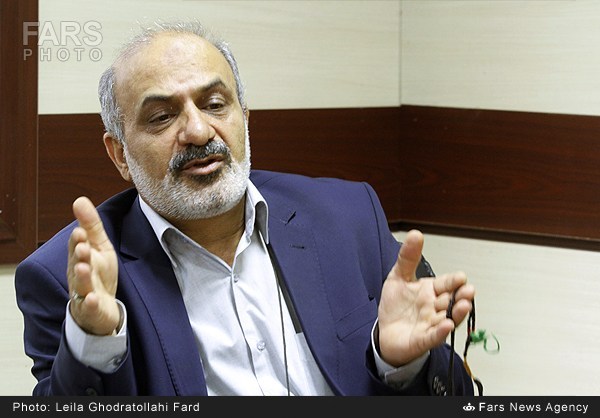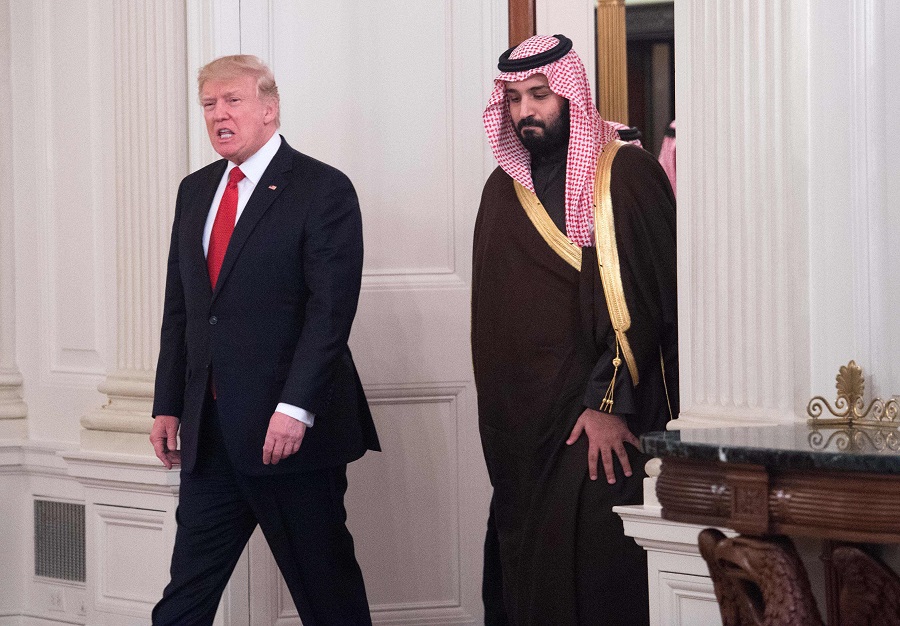
“Trump Seeking to Trigger New Proxy Wars in West Asia”
Donald Trump has started an all-encompassing game in West Asia and adopted various policies. Can Trump’s programs and policies in West Asia be defined under consistent strategies? What is the Trump administration’s strategy in this region? What programs does he have in mind and what are their chances of success or failure?

Hadi Mohammadi, an expert on West Asia affairs, has, in an extensive interview with the Basirat news website, weighed in on the different dimensions of Trump’s strategy and programs in the region and expounded on their chances of success or failure. The following is the full text of the interview:
BASIRAT:How do you evaluate Trump’s strategy in the West Asia region?
Hadi Mohammadi:Trump’s strategy in the region can be assessed from seven dimensions.
The 1st dimension: Trump’s strategy in the region, particularly in West Asia, can be regarded as an Iran-oriented one. His policies and strategy have been adopted based on Washington’s strategic needs in relation to West Asia.
At the regional level and in relation to Iran, Trump is trying to form regional fronts similar to what he did during the Riyadh meeting. That front, which has an Arab-Hebrew nature, is known as the Arab-Israeli NATO. The US seeks to shift the position of the enemy in regional equations and introduce Israel as a friend of Arab states.

The 2nd Dimension: Washington’s strategy includes plans for Iraq and Syria. Trump has tried to create an occupied geographical crescent, especially in Syria, This comes as US troops are operating along with Kurdish forces in Raqqa. The US has occupied parts of Syria and, under the pretext of fighting ISIS, seeks to gain control of a large geographical area in the north of the country. Washington seeks to stabilize its occupation there and turn that area into a safe haven for its moves and construct bases and airports there.
The 3rd Dimension: Trump is trying to turn the spotlight on the continuation of the Yemen crisis in a bid to occupy vital and strategic spots in the country and expand its military operations there under the pretext of fighting the al-Qaeda terrorist group. The United States is facing numerous problems when it comes to Yemen due to the rivalry between the United Arab Emirates and Saudi Arabia. US authorities have recently ordered Saudis to help al-Qaeda in northern Yemen unlike in the past in order to increase the pressure on the Ansarullah movement and, by spreading poverty, keeping people hungry and imposing a severe economic sanction, force northern Yemeni areas to succumb to their political and security demands.
It’s not that Trump’s scenario in Yemen will play out smoothly and reliably. Incontrovertibly, part of the Trump’s agenda is to perpetuate the crisis in Bahrain, and he has defined this strategy as part of efforts to counter Iran’s influence in the region.
The 4th Dimension: In order to establish a network of his partners or to further strengthen them, Trump has been trying to launch a new round of unflinching support for regional dictators, adopt a policy of aggression and pursue a much more active policy vis-à-vis his allies. From this perspective, Trump’s policy has a new logic behind it, and the logic is that he has announced his allies must pay the US in return for Washington’s protecting their dictatorships in the region. During Trump’s visit to Saudi Arabia and the Riyadh Conference, we saw huge contracts worth hundreds of billions of dollars were signed. These bribes have given Washington’s partners a free hand. Even Saudi Arabia is referred to as the regional police in an attempt to manage the new trends between Qatar and Saudi Arabia.
The 5th Dimension: Trump seeks to reduce Russia’s leverage and potential in the region as much as possible, which means although Trump had initially said he would pursue a peaceful path with the Kremlin, he seeks to strike a balance of power with Russia on the international level when it comes to the Pentagon and the US security apparatus. So, it is expected that US policies in West Asia would have to go through a path full of tension, some of whose signs can be seen now in Syria.
The 6th Dimension: The Trump administration seeks to launch a new phase of proxy wars through regional countries. The reason is that the terror scenario pursued through ISIS, al-Qaeda and the al-Nusra Front has failed to fulfil the stated objectives, and hence, the US deems it necessary to protect these groups and their capabilities. Washington may relocate them to other parts of the region and the world. Even now, there are reports of these groups being transferred to Central Asia, Afghanistan, North Africa and Yemen. However, terrorist groups are weak in launching proxy wars against independent regional countries. Through this mechanism, the US seeks to reinforce the fronts it has made with some Arab states. A testament to that is the threatening and impudent tone of Saudi authorities in dealing with Iran over the past months. In other words, Arab countries in the regions have triggered tension with Iran on behalf of the US. That is why Mohammad bin Salman and other Saudi officials have talked of spreading the war into Iran.
The 7th Dimension: The strategy to secure domination over the region’s energy and financial resources is based on a policy of disintegration. In accordance with Washington’s 2025 project to disintegrate the region and based on covert moves that the US has put on its agenda for Kurds, the White House seeks to complete its scheme to disintegrate the region by taking advantage of Kurds in northern Iraq and bringing them closer to Kurds in Syria and, perhaps in the years to come, by turning to Kurds in southern Turkey. This dimension is coupled with numerous problems and challenges. The US keeps trying to gain domination over the energy resources in the region during Trump’s tenure.
Trump’s new strategy includes a kind of division of labour with the UK in his regional scenario. Following the Brexit issue, London thinks its share of regional profits is not proportionate to the extent of its involvement; so, it has enough motivation to play a more active role in the region and secure a bigger share of the regional wealth. That’s why in the crisis between Saudi Arabia and Qatar, Britain’s regional arms such as Kuwait, Jordan and Oman are following an approach inconsistent with Riyadh’s policies. In other words, they are standing by Saudi Arabia, but seek to follow an independent course. That’s why the Al-Saud regime says Kuwait is not pursuing a friendly path. This unmasks the British nature of these policies. The UK seeks to adopt an approach independent of Washington’s stance when it comes to Yemen, Iraq, Syria, Iran and Bahrain in a bid to secure a share of the regional riches.
BASIRAT:How do you evaluate the chances of success or failure for these US strategies and programs?
Hadi Mohammadi : These strategies have a lot of strategic weak points. Experience over the past two decades in the region shows the US has suffered strategic losses while trying to secure strategic gains in the region by adopting anti-Iran or Iran-oriented policies.
Moreover, Washington’s partners in the region are extremely vulnerable. US allies, from Turkey to Saudi Arabia, Qatar, the United Arab Emirates and others are on the verge of back-to-back defeats and are in a much weaker position compared to previous years.
Unlike in the past years, these partners lack consistency in action among themselves, and each is following a different path or point of view. One of the shortcomings of Trump’s weak points is that it focuses on economic features or on plundering the regional wealth. Although the strategy may be fruitful for Trump in the short run, it will dent confidence in the United States. The reason is that Washington wouldn’t use its troops to ensure the security of its ally countries in the region, which puts a question mark over how profound and deep-rooted Trump’s strategy is.
Another point is that Washington’s new strategy has little chance of proving efficient, which puts in doubt the degree to which this strategy will be successful. The reason is that, first of all, other powers will get involved in active rivalry with the US. These powers include Russia, and probably China. There are even rifts between the US and Europe. All of these will put a question mark over how successful the strategy will be.
At the regional level, particularly in West Asia, new powers are stabilizing their position, which will chip away at the efficiency of Washington’s strategy.
The United States does not have what it takes to get involved in major wars or intractable security tensions, which will further undermine the strategy. Furthermore, Trump is facing challenges at home, such as protest rallies, the impeachment issue and even economic issues, all of which will put the efficiency and degree of success of the strategy in doubt.















